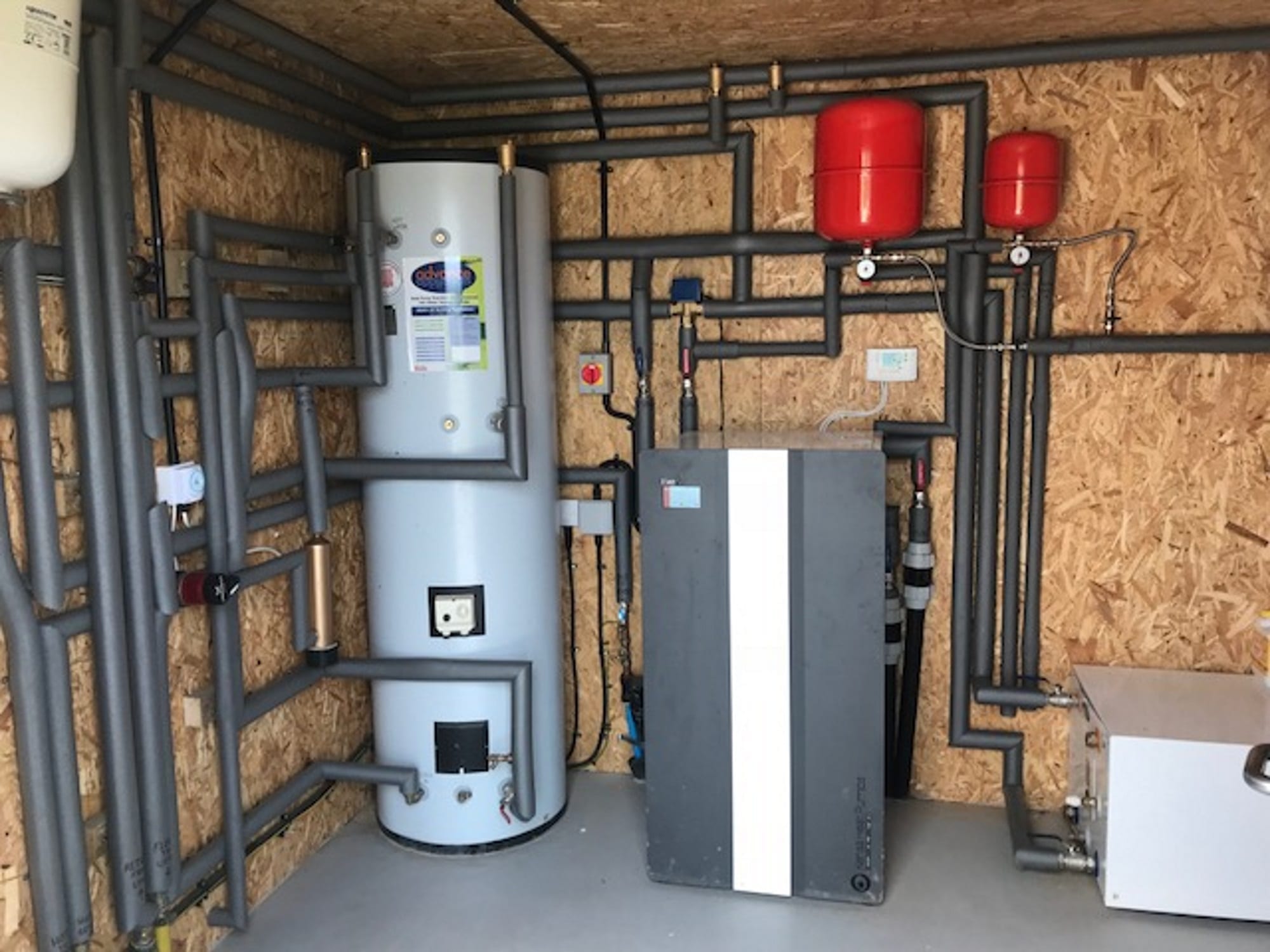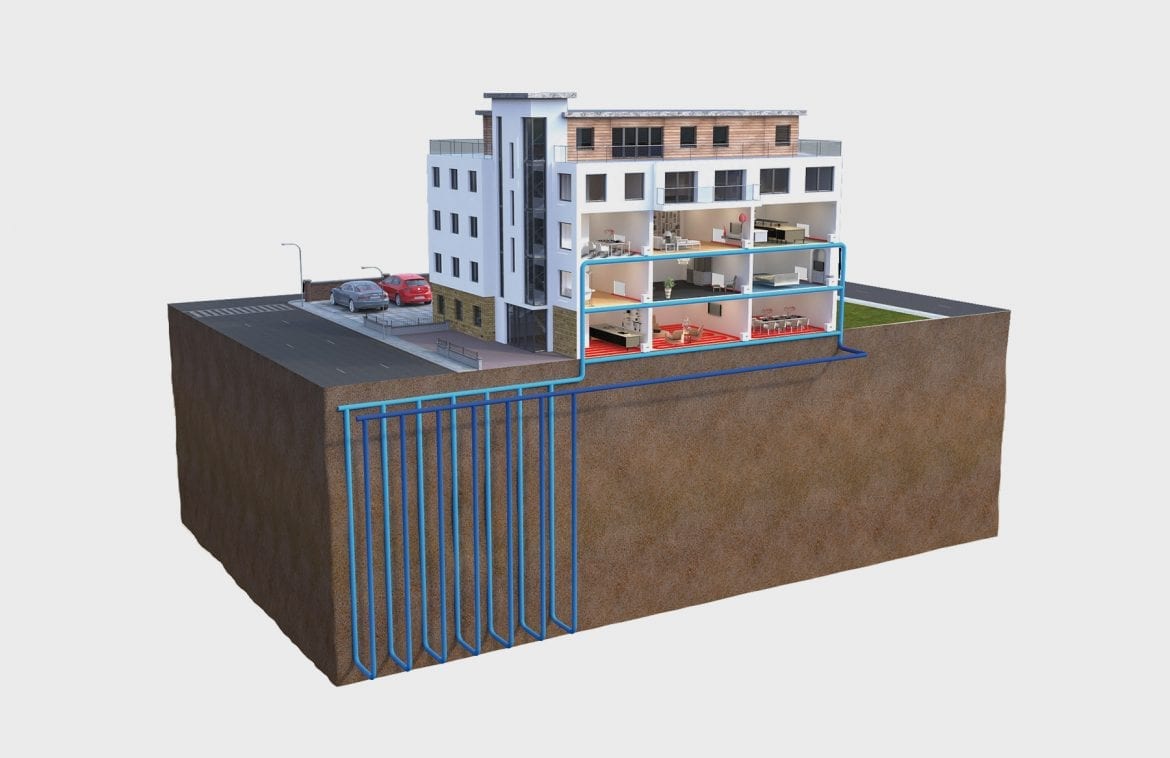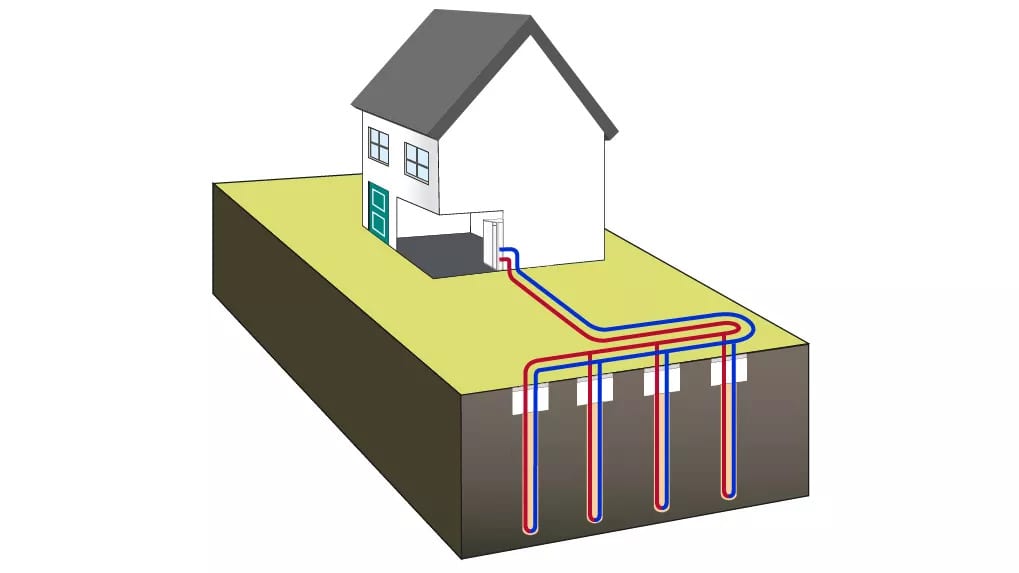Ground Source Heat Pumps
Sustechs provide a full range of the latest in Ground Source Heat Pumps (GSHP) solutions, including NIBE, Kensa and Vaillant.
A ground source heat pump provides a clean way to heat buildings, free of all carbon emissions. It makes use of solar energy stored in the ground to provide one of the most energy-efficient ways of heating buildings. Solar recharge of the ground is an integral part of ground source energy which is used to increase the efficiency of ground source heat pumps.
Ground source heat pumps are suitable for a wide variety of buildings and are particularly appropriate for low environmental impact projects.
They can be installed anywhere in the UK, using a borehole or shallow trenches or, less commonly, by extracting heat from a pond, a lake or the sea. Heat collecting pipes in a closed loop, containing water (with a little antifreeze) are used to extract this stored energy, which can then be used to provide space heating and domestic hot water. Heat pumps can also be reversed in summer to provide cooling.
The only energy used by a ground source heat pump is electricity to power the compressor and the circulation pumps which transfer heat energy from the ground into the building. A well-designed ground source heat pump installation will deliver three or four times as much thermal energy as is used in electrical energy to drive the system.


Ground source heat pumps work best with heating systems which are optimised to run at a lower water delivery temperature than is commonly used in radiator systems. As such, they make an ideal partner for underfloor heating systems.
Ground Source Heat Pumps save money. Heat pumps are much cheaper to run than direct electric heating systems. GSHPs are cheaper to run than oil boilers and can be cheaper than running gas boilers.
Because heat pumps can be fully automated they demand much less work than biomass boilers.
Heat pumps save space. There are no fuel storage requirements. No need to manage fuel deliveries. No risk of fuel being stolen.
Heat pumps are safe. There is no combustion involved and no emission of potentially dangerous gases. No flues are required.
GSHPs require less maintenance than combustion-based heating systems. They also have a longer life than combustion boilers. The ground heat exchanger element of a ground source heat pump installation has a design life of over 100 years.
Heat pumps save carbon emissions. Unlike burning oil, gas, LPG or biomass, a heat pump produces no carbon emissions on site (and no carbon emissions at all, if a renewable source of electricity is used to power them).
GSHPs are safe, silent, unobtrusive and out-of-sight: they require no planning permission.
Heat pumps can also provide cooling in summer, as well as heating in winter.
Ground source heat pumps are the only renewable energy technology that can benefit from the thermal energy storage properties of the ground to recycle heat from summer to winter. A well-designed ground source heat pump system is likely to increase the sale value of your property.
To discuss your Ground Source Heat Pump requirements;

projects
Read about some of our Ground Source Heat Pumps Projects



